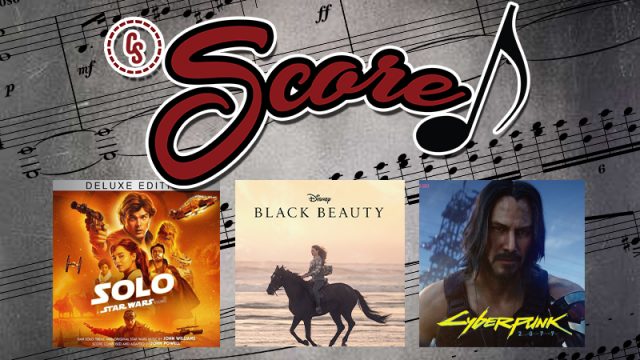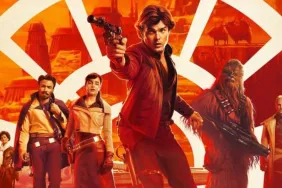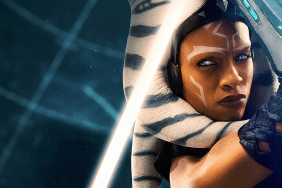Welcome back, film score lovers! This week we’ve got quite the lineup. First, we take a deep dive into the recently released Solo: A Star Wars Story Deluxe Edition Soundtrack by John Powell and John Williams, which is available to stream digitally on all major platforms. Next is an interview with composer Guillaume Roussel, who spoke with CS Score about his beautiful work on the Disney+ film Black Beauty. And finally, we also got a chance to speak with Cyberpunk 2077 composers P.T. Adamczyk and Paul Leonard-Morgan, who wrote the score for the anticipated video game alongside Marcin Przybylowicz. Let’s do this!
UPCOMING RELEASES
Available to order at https://t.co/M4LZNDtqCp starting 12/1 at 12 noon (pst): #TREMORS 30th ANNIV. Limited Edition #soundtrack 2-CD SET by #ErnestTroost and #RobertFolk @kevinbacon @UniversalPics pic.twitter.com/iOpEHhsqty
— La-La Land Records (@LaLaLandRecords) November 27, 2020
Available to order at https://t.co/M4LZNDtqCp starting 12/1 at 12 noon (pst): #XFiles Vol. 4 – Limited Edition 4-CD #soundtrack set by #MarkSnow ! @davidduchovny @GillianA #90s @XFilesNews pic.twitter.com/3k2t8Cjv3H
— La-La Land Records (@LaLaLandRecords) November 27, 2020
Back in stock! RAMBO FIRST BLOOD PART II and RAMBO III. https://t.co/LiGrEdmh1J
— Intrada (@IntradaCDs) November 21, 2020
New Intrada CD Release SPECIES II. Complete Edward Shearmur score to 1998 sci-fi/thriller sequel! https://t.co/iUGE2Q0DgV
— Intrada (@IntradaCDs) November 16, 2020
THE LAST VERMEER
BY JOHAN SÖDERQVIST
Before we get into it, check out this amazing track to The Last Vermeer—Original Motion Picture Soundtrack! The music is by Johan Söderqvist (Brothers, Let The Right One In), whose orchestrated score provides an enigmatic backdrop to the dramatic thriller that explores the question, according to director Dan Friedkin, “what art is and what makes something fake or not.” You can purchase the Lakeshore Records album by clicking here!
Says Söderqvist: “With The last Vermeer score I wanted to create a music that consisted of many layers, just like the paintings that we see in the film, both in texture but also in time. With influences from baroque music together with more modern themes and with sounds, instruments and atmospheres that belong more in our present time.”
SOLO: A STAR WARS STORY DELUXE EDITION SOUNDTRACK
John Powell and John Williams
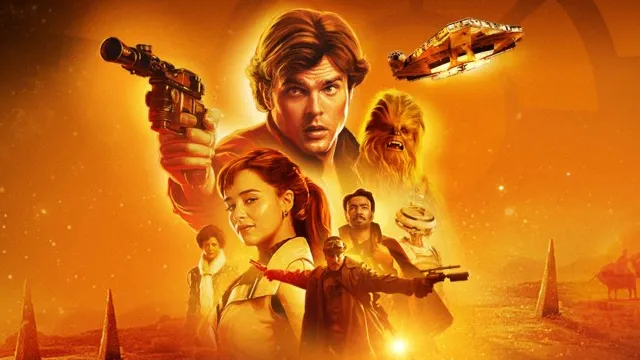
Purchase the Solo: A Star Wars Story Deluxe Edition Soundtrack here!
About a month or so ago, John Powell teased the release of a deluxe edition for his fantastic score to Solo: A Star Wars Story, and true to form the man delivered! As of now, the album is only available in a digital release (via all digital platforms) with no word as to whether a physical copy will be available to purchase in the future. No matter, this soundtrack delivers!
Packed with over two hours of music and presented in chronological order as heard in the Ron Howard film, Solo stands as the best of the new batch of Star Wars scores released since Disney’s acquisition of the property back in 2012. More ambitious than John Williams’ The Force Awakens, The Last Jedi and The Rise of Skywalker and more polished than Michael Giacchino’s Rogue One: A Star Wars Story (which suffered from a rushed schedule), Powell’s work on Solo mixes the best of Star Wars with a plethora of exciting new themes, including one for Han Solo written by John Williams himself.
The score kicks off with a batch of swashbuckling cues — “Meet Han,” “Bunk/Proxima,” “Corellia Chase,” “Spaceport” and “Gonna Be a Pilot” — underscoring Han’s attempts to escape his current predicament via a high octane chase on the planet Corellia. These tracks lean heavily on the “Solo” theme while simultaneously introducing the love theme written for Han and Qi’Ra, which is given a melodramatic statement in the latter portion of “Spaceport.”
The track “Mimban Battle” kicks off with a powerful rendition of the Imperial March as Han, now serving as a soldier in the Imperial Army, quickly becomes disillusioned with the needless carnage created by intergalactic war. Heavy underscore dominates the next few tracks until “Chewie Untamed” returns to a livelier action beat as Han and his new furry pal escape with Beckett’s ragtag team. This track closes with a lovely piece of music very reminiscent of Powell’s work on How to Train Your Dragon.
That’s the thing with Solo. While a majority of the music is pulled from previous Star Wars scores, Powell infuses each track with his own energetic sensibilities and makes it his own. The “Mimban Battle” cue is a perfect example of this as it presents the Imperial March in a way not heretofore done. As such, the results are fresh, unique, and undeniably Powell — but still very much Williams. If that makes sense.
“Deluxe Train Heist” opens with a softer melody before presenting one of the better action cues on the album as Han and Beckett’s team attempt to steal coaxium on Vandor-1. The cue is very traditional in nature until around the midway point when Powell introduces the choir-filled motif for the mysterious Enfy’s Nest who arrive to steal the coaxium for themselves.
Han and Qi’ra’s love theme gets a sweeping treatment in “Han & Qi’Ra Reunite” played during the moment the two star-crossed lovers find one another aboard Dryden’s floating craft. The next several tracks are mostly playful underscore, a highlight of which is “Sabacc Game” and “L3 & the Millennium Falcon,” the latter of which explodes into a dramatic rendition of the main Star Wars theme as Han lays his eyes on the legendary ship for the first time. “Family Stories” likewise begins quietly before exploding into Han’s theme as Han, Qi’Ra, Beckett, Chewie, L3 and Lando take off for their next adventure.
“Lando’s Closet” mirrors “Han & Qi’Ra Reunite” in its presentation of the love theme but takes it one step further dramatically. The action returns a few tracks later in the lengthy “Extra Deluxe Mine Mission” which of course brings us to the best track on the entire album: “Kessel Run in Less than 12 Parsecs,” an 11-minute cue that mixes a number of cues from the original trilogy (including “The Astroid Chase”) with Han’s theme in high octane fashion. The results are absolutely thrilling!
After a softer reprise of the love theme in “Savareen Tent” and “Qi’Ra Knows a Bit More than Han,” and another rendition of Enfy’s theme in “Enfy’s Stand-off,” the action returns in “Double-Double Cross,” which quietly builds into another powerful statement of Enfy’s them as Han and Qi’Ra unveil their trap. “Dryden’s Long, Long Fight” opens on an intense note before giving way to rhythmic drums and a heroic statement of Han’s theme as Qi’Ra takes the fight to Dryden herself; and the track ends with a quiet, somber rendition of the love theme played during Han and Qi’Ra’s final goodbyes.
The next track, “Maul’s Call/Parting Ways” opens with eerie choir, reminiscent of the Emperor’s theme, played over a quiet rendition of Williams’ classic “Duel of the Fates,” as Qi’Ra speaks to Darth Maul — an exciting minute or so that’s hints at what might have been had Solo become a franchise.
“Sabacc Rematch/To Tatooine” is a reprisal of the “Sabacc Game” heard earlier that morphs into a triumphant state to of Han’s theme before the familiar Star Wars musical cue plays over the credits in the lengthy “Super Extra Deluxe End Credits.”
All told, Solo: A Star Wars Story is an absolute blast from start to finish and features some of the most exciting music in the Star Wars saga to date. That Powell’s work at times takes a back seat to Williams’ work is likely by design; and one expects Powell’s work would have drifted to the foreground in future films. As is, the score frustrates as much as it thrills if only because we will likely never see its evolution due to Solo’s lackluster box office performance.
At any rate, this new deluxe edition presents Powell’s work for Solo in all of its glory and makes for a solid entry in the ongoing Star Wars franchise. We truly are spoiled!
INTERVIEW WITH BLACK BEAUTY COMPOSER GUILLAUME ROUSSEL
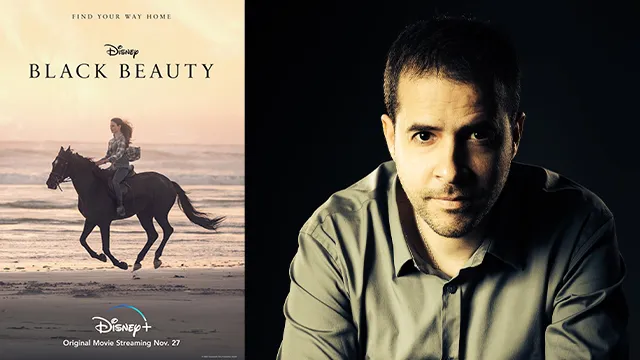
Guillaume Roussel has worked on a number of projects, including the video games Shrek Forever After and Rango; and Netflix’s The Spy, Syfy’s Happy! and CBS’s Ransom. In 2010, Hans Zimmer invited him to join the Remote Control team where he composed additional music for How Do You Know (Comment Savoir), Pirates of the Caribbean: On Stranger Tides, and The Smurfs. He has also composed music for the French feature Les Seigneurs (The Lords), Three Days to Kill and Grace of Monaco, among others.
A modern retelling of Sewell’s 19th-century novel, Black Beauty tells of the titular horse who is born free in the American West. When she is captured and taken away from family, her story intertwines with that of 17-year old Jo Green, similarly grieving over the loss of her parents. The two slowly develop a bond that is built on love, respect, and mutual healing.
Pick up your copy of Sewell’s Black Beauty novel here!
The film stars Mackenzie Foy (Interstellar, The Nutcracker and the Four Realms) as Jo Green and Oscar winner Kate Winslet (The Reader, Steve Jobs) voices Black Beauty. The movie also stars Iain Glen (Game of Thrones) as John Manly and Claire Forlani (Meet Joe Black) as Mrs. Winthorp.
Ashley Avis (Adolescence, Deserted) wrote the screenplay and directed the movie. Black Beauty was filmed last year in South Africa.
Jeremy Bolt (Polar, Monster Hunter) of JB Pictures and Constantin’s Robert Kulzer (Polar) produced the project along with South African producer Genevieve Hofmeyr (Mad Max: Fury Road) of Moonlighting Films. Executive producers include Martin Moszkowicz, Edward Winters, and Jon Brown with Dylan Tarason serving as co-producer.
ComingSoon.net: How did you get involved with Black Beauty?
Guillaume: I was introduced to Ashley by my friend Jeremy Bolt, who is also the producer on the film. Ashley and I had our first meeting about a year ago. During that meeting, I played her some ideas I had for the score and we talked about the musical direction she wanted to go in. We clicked instantly during this meeting, which really allowed me to be inspired with the project. The timelines on some projects are very limited, but with Black Beauty, I started very early on in production, which gave me ample time to experiment and try new things. From the very beginning, Black Beauty sounded like a project I knew I would enjoy working on. I haven’t scored a family-oriented film before, so this one was a great to be part of.
CS: What were some of the challenges you faced producing the score for the film?
 Guillaume: The most challenging part was constantly changing and tweaking the score because of all the picture edits. Since I started on day 1 of picture editing, I had to change the score multiple times because of the different edits. Through the post-production process, it’s always challenging making sure your initial musical ideas are still valid through the changes.
Guillaume: The most challenging part was constantly changing and tweaking the score because of all the picture edits. Since I started on day 1 of picture editing, I had to change the score multiple times because of the different edits. Through the post-production process, it’s always challenging making sure your initial musical ideas are still valid through the changes.
CS: The film’s plot is broken up into different chapters, and your music reflects the changing landscapes and tonal shifts as Beauty transitions to different owners — was there a particular section of the film you started with first and then branched out from? Was there a section you enjoyed scoring more than the others?
Guillaume: I scored the film in chronological order. A section I particularly enjoyed scoring was when Beauty arrives at this very rich family, The Winthrop’s. That section had a very classical vibe, which was fun. It’s quite rare to be able to write music that has a more classical approach. It was an opportunity that I really embraced.
CS: One of the best scenes of the film is when Jo finally rides Beauty — the music is magical and seems to reach its peak before the darker portions of the film take over. What was your overall goal with that piece of music?
Guillaume: This was a key moment in the film. It was challenging because we put a lot of expectations on this music. Because we found a theme we really loved, it was not that complicated. It was satisfying being able to play the music very loud at this moment because most of the time the music is very subtle, but during this sequence, we wanted to turn it up. On this particular scene, I was able to unleash the power of the theme, which was enjoyable. Overall, it was not complicated at all though, we just had to embrace having the theme there. That was a great feeling.
 CS: Later in the film, Beauty endures a lot of hardship and even comes face to face with Ginger in one of the saddest parts of the film — there’s a rendition of Silent Night that plays during that moment. How did you decide on that piece for that scene?
CS: Later in the film, Beauty endures a lot of hardship and even comes face to face with Ginger in one of the saddest parts of the film — there’s a rendition of Silent Night that plays during that moment. How did you decide on that piece for that scene?
Guillaume: That was Ashley’s choice. She always wanted to have something that relates to Christmas at that point in the movie. So, I did an arrangement of that piece, and incorporated it into the musical word we were striving for.
CS: You show a lot of restraint in your score, which never overwhelms the images on screen but, rather, seems to underscore Beauty’s emotional journey — did I read that correctly, and was that a stylistic decision you and the director, Ashley Avis, discussed early on?
Guillaume: Yes, you are correct about this observation. I don’t think Ashley and I discussed this stylistic decision specifically, but it was just understood. I tend to let the picture lead the way unless the scene is supposed to feel very grand, like the one we mentioned earlier with Jo finally riding Beauty. Otherwise, I like to find the balance where audiences don’t notice the music really, but it’s still there bringing a lot of emotions to the surface. Furthermore, I do like to be subtle, when a movie like this requires it. Overall, this story has very abstract emotions because it’s between a human and an animal communicating without words, at least for Beauty. So, at the same time, you need some music to help the audience feel what Beauty feels, but at the same time, you only see these emotions through eyes. I couldn’t be pushing hard because then things would begin to sound artificial. The movie looks so real and natural, the horse is real, there is absolutely no CGI. The film is a lot about natural things and emotions, so the music had to match this to make things feel real.
CS: There have been several film adaptations of Black Beauty, all with different styles of music — did any of the previous scores, including Danny Elfman’s 1994 score, inform your work in any way?
Guillaume: The 1994 film that Danny Elfman scored is the only adaptation I’ve seen. That’s the only one I knew to be honest. I tried to stay away from re-watching it, so it wouldn’t influence me in any way. I also didn’t want to go back and listen to it because it would have intimidated me. I’m sure I will go back and watch soon, since the film is out now though. Danny has been one of my heroes for a long time. I remember listening to his Batman Returns score and having a feeling that this is something I wanted to do in my life. He is one of my favorite composers and an inspiration for me.
CS: How important is it to you to get along with the director, and do you like more freedom or more direction when you are creating a score?
 Guillaume: Regarding more freedom or more direction, it depends on the film. Most of the time I do prefer to be working alongside the director, as opposed to being left alone to do my own thing. Working with the person who has the vision for the film, definitely helps finding new ways of composing and creating new music. When I am completely alone, the risk of repeating myself is larger. So, I definitely like the more collaborative process because it helps me better understand what their vision for the characters and scenes are. Working with Ashley has been such a fulfilling experience, she is very into music, so we exchanged a lot of ideas. She really inspired the music you hear it in the movie. She had such a delicate and sincere approach to every aspect of the movie. She helped me with delivering a very sincere score.
Guillaume: Regarding more freedom or more direction, it depends on the film. Most of the time I do prefer to be working alongside the director, as opposed to being left alone to do my own thing. Working with the person who has the vision for the film, definitely helps finding new ways of composing and creating new music. When I am completely alone, the risk of repeating myself is larger. So, I definitely like the more collaborative process because it helps me better understand what their vision for the characters and scenes are. Working with Ashley has been such a fulfilling experience, she is very into music, so we exchanged a lot of ideas. She really inspired the music you hear it in the movie. She had such a delicate and sincere approach to every aspect of the movie. She helped me with delivering a very sincere score.
CS: Black Beauty is a timeless classic. What makes it resonate so well with audiences even in the modern age?
Guillaume: I actually didn’t know it was such an important part of culture here in the U.S. and London. I am from France and the story isn’t as well-known there. I think it has made such a lasting impression because it explores very raw emotions. The connection between humans and another living creature is also very special. It’s beyond age, gender, and class. That’s what makes this story so special. And obviously, I know this masterpiece has opened the eyes of many generations on how to respect horses and their condition a little better. And animals in general for that matter.
CS: Do you have any upcoming projects you can discuss?
Guillaume: I am currently working on a few French features. I am also working on a few in the U.S., but am not able to talk about those at the moment. I have to add, I am enjoying reading what audiences are saying about the film. When you put so much time and effort into a project, it is very fulfilling to see people respond so positively.
INTERVIEW WITH CYBERPUNK 2077 COMPOSERS P.T. ADAMCZYK & PAUL LEONARD-MORGAN
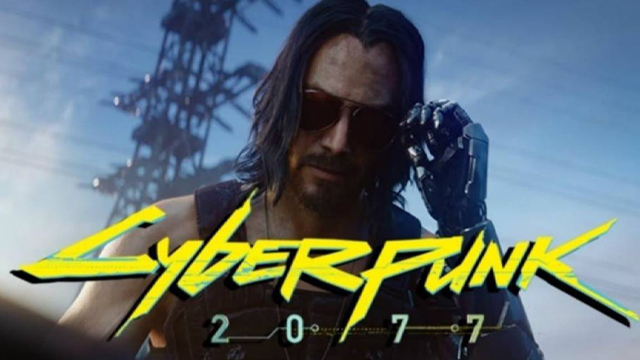
The score to Cyberpunk 2077 was produced by P.T. Adamczyk, Paul Leonard-Morgan, and Marcin Przybylowicz. You can pre-order your copy of the game by clicking here!
P.T. Adamczyk is a composer and music producer for games and motion pictures and serves as the in-house composer at CD Projekt RED. His credits also include (among others) Thronebreaker: The Witcher Tales (2018) and Gwent: The Witcher Card Game (2018), the former of which garnered him the Digital Dragons Award in 2019 with Marcin Przybyłowicz and Mikolai Stroiński.
Paul Leonard-Morgan’s unique cinematic style of fusing orchestra with electronica has put him in high demand as a film composer, a producer, and arranger for bands, and has led him to win a BAFTA award, and receive Emmy & Ivor Novello nominations. He has worked on such films as 2011’s Limitless (as well as its 2016 CBS TV spinoff), 2012’s Dredd, and TV shows Dynasty, The Nest, and Tales from the Loop, among others,
ComingSoon.net: How did you become involved with Cyberpunk 2077?
P.T. Adamczyk: It was early 2017 and I was living in LA when I found out that there’s an opening for an in-house composer position at CDPR. I applied and got hired. I obviously played all The Witcher games before and was a huge fan of the series so joining the team responsible for one the best RPGs ever was a pretty big deal for me. I was also aware of CP2077, but at that time only the very first cinematic trailer from 2013 was released. So the possibility of shaping the musical language of a brand new IP was very tempting.
Paul Leonard-Morgan: Seems like a million years ago now! Marcin and the team got in touch and asked if I’d be interested in having a chat about working with them. They knew my soundtrack to Dredd which they really liked, and thought that there were elements in my style which might combine well with theirs. I’m a big Cyberpunk genre fan in general, and the opportunity to work on a game like this, and help create the sound for this universe, was massively appealing. Added to which, it’s CDPR. What more convincing did I need?!
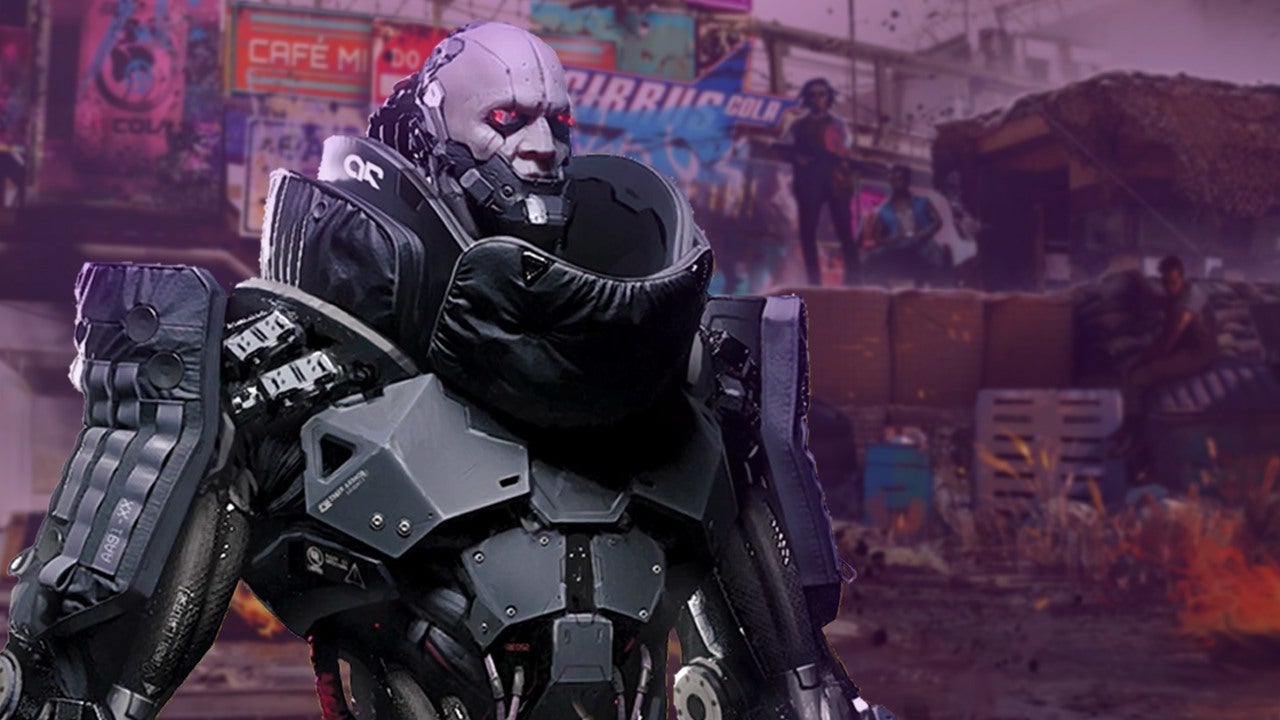 CS: What challenges did the project present?
CS: What challenges did the project present?
P.T.: Finding the right tone for the game took a long time. Night City is a cyberpunk setting like no other, thus we wanted the score to also have a singular quality. It took a fair amount of experiments and research to get there, but once we got our main instruments down – Folktek Mescaline, Polivoks and other analogue and boutique synthesizers and effects – things started to fall into place. The other challenge was the size of the game. We wanted to create as many custom assets as possible because we quickly realized that with the kind of storytelling present in CP2077, slapping a non-descript cue won’t cut it. So we carefully spotted and scored all quests and side quests in the game. And once those were in place we had to then populate the world with radio content and sometimes maneuver around existing radio-emitters or merge the diegetic and nondiegetic music.
PLM: I think the real challenge was making sure that the 3 of us collaborated together in a way that led to a unified, coherent soundtrack. With 3 composers, we were originally thinking to ourselves “well, if I do this style, how will that impact X or Y’s music”. But over the space of the first 6 months we experimented with sounds, instruments, samples – pretty much anything you can plug in, hit, scrape and sample! And we found that even though we all use different gear, there were a few synths that we all used (in very different ways) that led to a warmth and distortion over all the music and atmosphere we did, so it all blends in really well.
CS: What is the process of developing a score for a video game? How similar is it to developing a sound for a TV show or motion picture?
P.T.: There are many similarities, but the main difference is probably the amount of music that needs to be written and produced and the interactive aspect of it. Many times, with our custom approach to quests, we had to reiterate a fragment of the score because our QA – shout outs to Czub – cream of the crop of Audio QA’s out there — pointed out a different way of solving or a different path to an objective. Marcin and I are in a special position, because we both work in-house, so we write the score in parallel with the other teams. It’s actually a fun thing to see how the game develops, especially when you revisit a cue you wrote 8 months ago and the playthrough you got at the time was all messed up, with T-poses and voice synthesizer and now you get a fresh video with great light, facial animation, and proper setup. It’s easy to get inspired like that.
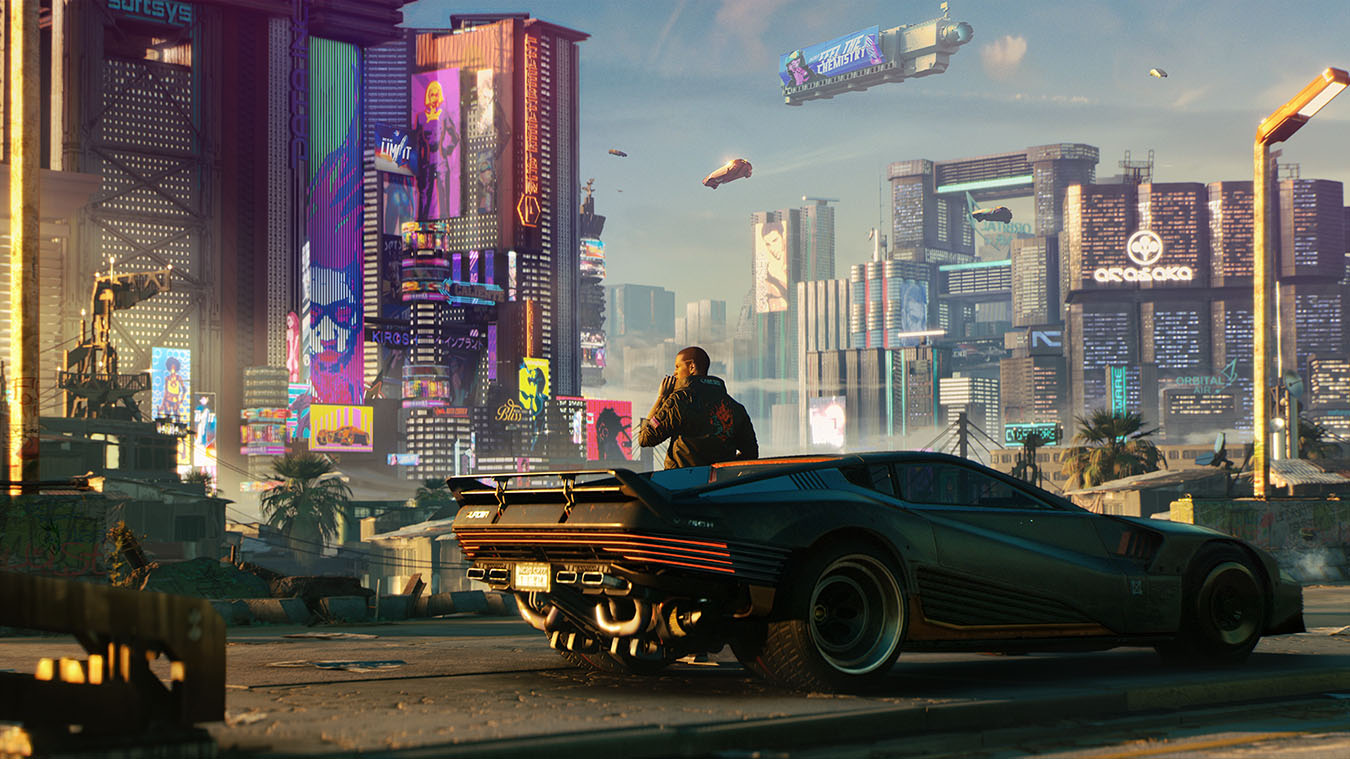 PLM: Personally I find the process pretty different. With TV and film you have limited time to experiment – a film is normally 2 or 3 months from start to finish. With games, you have the luxury of time at the beginning to try things out and discover what sounds work. With the 3 of us sending stuff back and forth between us, this was a wonderful 6 months, which meant that when we really got our heads down to composing, we had already established a pretty clear idea of what was working for us and what wasn’t. But even with that said, you always end up going down unexpected paths as you progress with the scoring process and develop stuff. The main difference between film and game writing, though, is HOW you score it. With film, you just write on stereo (OK, surround!) track which is scored to picture. The same action happens in the same place on every viewing. With games, we all play at different speeds and make different choices, so there’s a massive technical aspect to it – using layers of atmosphere, bass, percussion, distortion, etc, with each layer triggered by an event that happens. And it needs to appear seamless so the player doesn’t notice. Again, with a game the scale of Cyberpunk and number of choices you can make, it’s a big deal.
PLM: Personally I find the process pretty different. With TV and film you have limited time to experiment – a film is normally 2 or 3 months from start to finish. With games, you have the luxury of time at the beginning to try things out and discover what sounds work. With the 3 of us sending stuff back and forth between us, this was a wonderful 6 months, which meant that when we really got our heads down to composing, we had already established a pretty clear idea of what was working for us and what wasn’t. But even with that said, you always end up going down unexpected paths as you progress with the scoring process and develop stuff. The main difference between film and game writing, though, is HOW you score it. With film, you just write on stereo (OK, surround!) track which is scored to picture. The same action happens in the same place on every viewing. With games, we all play at different speeds and make different choices, so there’s a massive technical aspect to it – using layers of atmosphere, bass, percussion, distortion, etc, with each layer triggered by an event that happens. And it needs to appear seamless so the player doesn’t notice. Again, with a game the scale of Cyberpunk and number of choices you can make, it’s a big deal.
CS: The score is very heavy with fun electronic beats — when did you decide to go that way with the score?
P.T.: Early on in the process, we decided that the music should have a 90’s vibe. So we searched through this era and found lots of interesting ideas to work with. Techno, IDM, Industrial, HipHop, Rave – they all blossomed in the ’90s and their idioms are not super commonly used in scoring. And rightfully so, cause sometimes you need a jackhammer to make some of those motifs fit a scene… Also using dance-music genres as a backbone for our combat cues gives the encounters the right kind of edge and attitude. It also ties in with the Cyberpunk ethos – how your actions need to be flamboyant and loud and if you flatline in the process, and least you went down with style.
PLM: There’s a ton of 90’s influences in there, and we recorded Ilan Rubin (NIN drummer) for some pretty great grooves which we then processed to within an inch of their lives! But for me, it’s all about the attitude and energy of the score. There’s a lot of really dark and beautiful synth stuff in there – we have SO much analog gear which we processed in really unusual ways to create a futuristic, yet somehow slightly retro, sound – picture a spark of electricity, and that’s how we started creating the unique sounds. Weird mod synths, analog synths, electric cello, processed drums, pounding beats, and bass-lines. It’s a real ride! But we wanted to create such a unique sound for this game – I don’t think I’ve heard this kind of music in a score before, and we could totally picture a stadium full of people (post-covid!) dancing to this score.
CS: How much freedom do you have to create your sound?
P.T.: For an AAA game of this size and expectations — a lot. Once the tone of the music was established with the game director, we were left to our own devices. Most of the iterating was caused by changes in cinematics or quest teams. I don’t recall a moment when we’ve put something into the game and then got negative feedback ’cause the music was emotionally not fitting. Usually, it was a technical issue.
PLM: Massive freedom. And that’s what was so great about collaborating with the other two. On a project this size, you never normally get left to your own devices – there are always a million chefs in the kitchen. But they let us 3 just get on with it. I remember chatting to Adam (creator) in Warsaw last Christmas, and he said it was so funny, as he would stand outside PT and Marcin’s rooms and try and work out whose track was whose. Thumping 808 kiks – PT? Distorted bass lines? Me? Amazing melodies and atmosphere. Marcin? So great getting to experiment together!
CS: What aspect of the score are you most excited for fans of the game to hear?
P.T.: A lot of music, a lot of cool moments that I had a lot of fun scoring. Many different pathways – each prepared with the exact same care and attention to detail. We’re taking the players for a wild ride, and I’m kinda jealous that I don’t get to experience the game with their eyes. I just hope they will love the game.
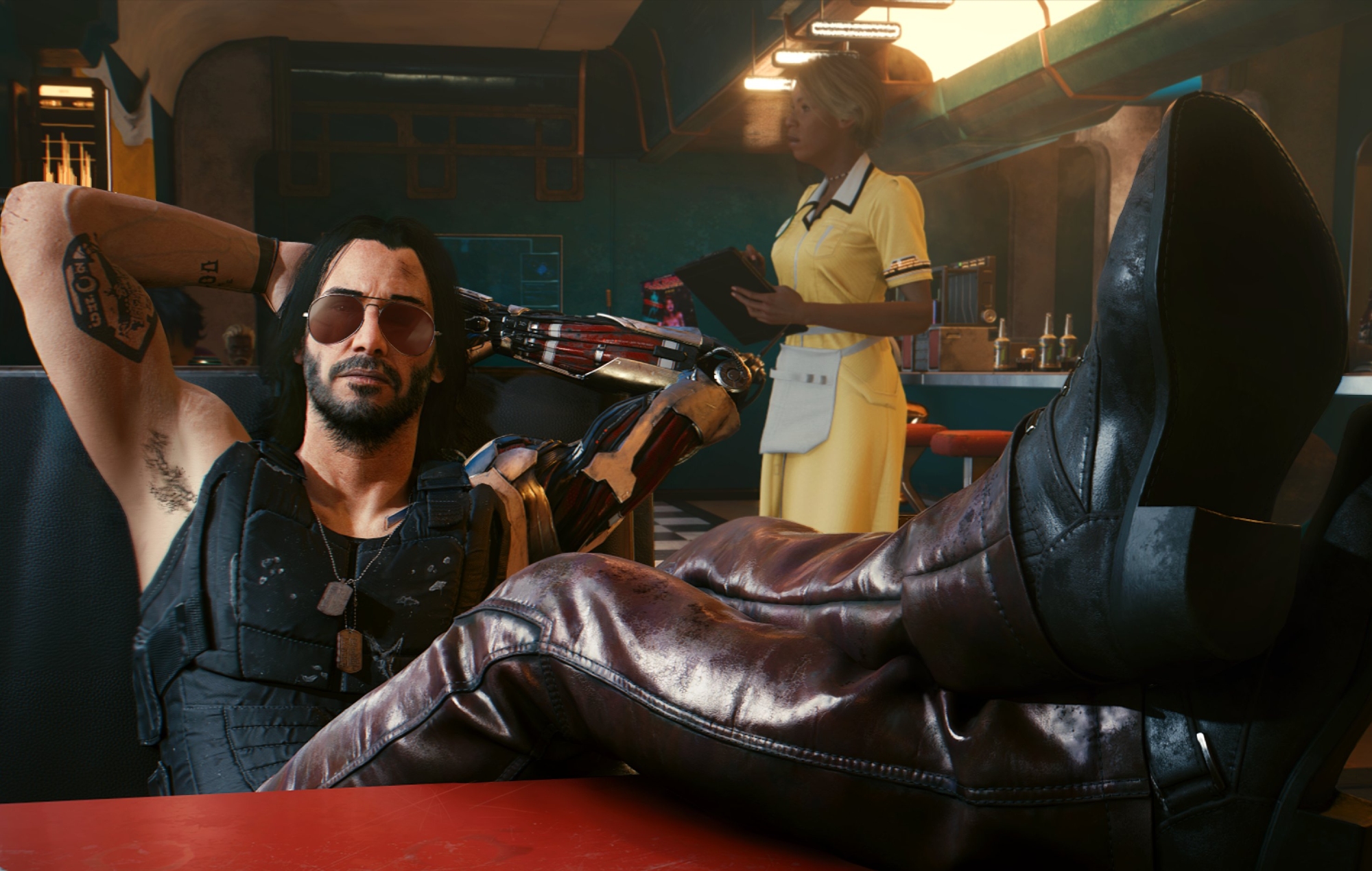 PLM: All of it! I want them to feel they’ve been taken on a journey by our score and the game. People have been so inquisitive/supportive over the last few years, asking “will it sound like this, will it sound like that?” and we’ve had to keep quiet. So once this baby is released into the world, we’re hoping it’s going to blow people’s minds and defy their expectations.
PLM: All of it! I want them to feel they’ve been taken on a journey by our score and the game. People have been so inquisitive/supportive over the last few years, asking “will it sound like this, will it sound like that?” and we’ve had to keep quiet. So once this baby is released into the world, we’re hoping it’s going to blow people’s minds and defy their expectations.
CS: Were there any influences — other composers, bands, soundtracks — you leaned on specifically?
P.T.: Well, I’m a big fan of Warp label’s catalogue from the ’90s and early ’00s. I feel that the music they released then still sounds futuristic, so that was probably a big influence. Also, I wasn’t really a techno fan before I started working on CP2077, but now I feel somewhat competent in it and there’s many artists and producers whose work I enjoy. It’s hard to pinpoint one thing
PLM: None particularly – just a lot of early 90’s stuff while getting our head into experimentation mode. But I think it’s pretty hard to describe the genre of where we ended up – which is a good thing!
P.T.: Cyberpunk craze has just begun. More to come!
PLM: I’m just mega excited for the world to hear this and play the game. After all this time, it becomes so hard to keep it all a secret! Really proud of this, and hope the loyal fans of Cyberpunk 2077 are as pumped about it as we are! I’m on 3 film scores at the moment, so back in the orchestral world and giving my ears a breather, but I need to get back into my electronica mode soon!
SOUNDTRACK NEWS
VINYL GENERATION
Keith Jones’s Vinyl Generation: A Story of Art, Revolution and Vinyl from Dark Star Pictures is available to stream on Amazon Prime, Tubi, and Vudu.
For fans of Shot by Gary Griffin, and directed by Keith Jones, this engrossing, music-fueled journey of art, revolution and final will be available for the first time this month in North America on Amazon Prime, Tubi, and Vudu.
Here’s the synopsis: In 1980s Czechoslovakia an emerging generation took inspiration from alternative culture to create their own worldview, politics, and eventually, a revolution. 25 years later, this unique generational perspective is explored for the first time. VINYL GENERATION: a story of art, revolution and vinyl…
Vinyl Generation is executive produced by Academy Award Winner Barbara Kopple (Dixie Chicks: Shut Up and Sing, Harlan County, USA).
Purchase Vinyl Generation on Amazon by clicking here!
THE WYLD STALLYNS RECEIVE A GRAMMY NOM!
The most excellent news as Bill & Ted: Face the Music’s Original Motion Picture Soundtrack has received a 2021 Grammy nomination for “Best Compilation Soundtrack for Visual Media.” The soundtrack, which you can stream/buy HERE, features original music by such artists as Weezer, FIDLAR, Lamb of God, Mastodon, Cold War Kids, and more. Full tracklisting below.
1. Big Black Delta – “Lost in Time”
2. Alec Wigdahl – “Big Red Balloon”
3. Weezer – “Beginning Of The End (Wyld Stallyns Edit)”
4. Cold War Kids – “Story Of Our Lives”
5. Mastodon – “Rufus Lives”
6. Big Black Delta – “Circuits Of Time”
7. POORSTACY – “Darkest Night”
8. Lamb Of God – “The Death Of Us”
9. FIDLAR – “Breaker”
10. Culture Wars – “Leave Me Alone”
11. Blame My Youth – “Right Where You Belong”
12. Wyld Stallyns (feat. Animals As Leaders, Christian Scott aTunde Adjuah) – “Face the Music”
13. Wyld Stallyns – “That Which Binds Us Through Time: The Chemical, Physical and Biological Nature of Love; an Exploration of The Meaning of Meaning, Part 1”
MICHAEL GIACCHINO TO SCORE SPIDER-MAN 3
As expected, Academy Award-winning composer Michael Giacchino is set to score the upcoming Spider-Man 3 for Marvel Studios. The composer confirmed as much via his Twitter account last week, which you can check out below.
Giacchino is a busy fellow these days scoring blockbuster sequels Jurassic World: Dominion and Matt Reeves’ The Batman among others. Spider-Man 3 is expected to release on December 17, 2021.
Happy to be heading home again!
